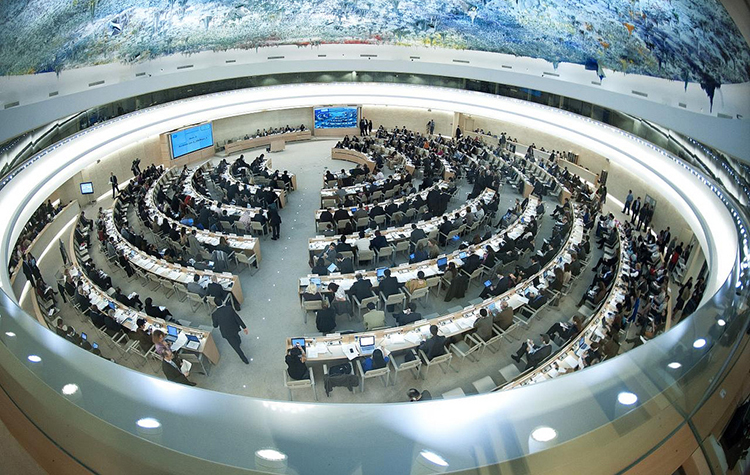38th Regular Session of the UN Human Rights Council
Item 3: Interactive dialogue with the Special Rapporteur on the promotion and protection of the right to freedom of opinion and expression
Oral Statement Delivered by Emmanuel Amistad on behalf of Asian Forum for Human Rights and Development (FORUM-ASIA)
Wednesday, 20 June 2018
Mr. President, FORUM-ASIA welcomes the report of the Special Rapporteur on freedom of expression and shares his concerns on Asian states – including on attempts to use terms of service requests to restrict political criticism by Government-aligned parties in Southeast Asia, and the trend of pressuring platforms ‘to remove content supportive of sexual minorities and Muslims.’
We echo his recommendations for states to repeal laws that criminalise or unduly restrict expression, online and offline; and for states and Information Communication Technology Companies (ICT) to be transparent and open to civil society.
We are deeply concerned by increasing threats to freedom of expression in Asia, including increasing attacks on journalists, growing online harassment for legitimate expression and pervasive impunity for hate speech.
In the Philippines, media reporting on extrajudicial killings in the government’s ‘war on drugs’ have been judicially harassed, and denied access to cover Presidential functions. Moreover recently the Congress has moved to amend constitutional guarantees on freedom of expression and undermine these rights.
Three countries in the region that face elections this year have also seen heighted restrictions.
In Bangladesh, in last few months, targeting of dissidents and political opponents with increased reports of enforced disappearances and extrajudicial executions has produced a chilling effect on free speech.
In Cambodia, the inclusion of a lese majeste clause in the criminal code and an amendment to the Constitution have serious consequences for the freedom of expression. The Phnom Penh Post, the country’s last independent newspaper, was recently sold due to government coercion, while two journalists of Radio Free Asia (RFA), Yeang Sothear in and Uon Chhin, remain in pre-trial detention since November 2017 on trumped-up espionage charges[1] seriously damaging media freedom.
In the Maldives, regressive laws, such as the Defamation and Freedom of Expression Act 2016, have been deployed to stifle press freedom. On 29 March, the Broadcasting Commission of the Maldives fined Sangu TV for televising an interview with an opposition politician. The Commission previously fined opposition-aligned Raajje TV on three separate occasions, including for a speech deemed defamatory towards the President.
Lastly, we ask the Special Rapporteur that how vulnerable sections of populations that are not technically aware could be assisted in practically comprehending technical restrictions online. Thank you.
[1] http://www.licadho-cambodia.org/flashnews.php?perm=241
***
For a PDF version of this statement, click here



